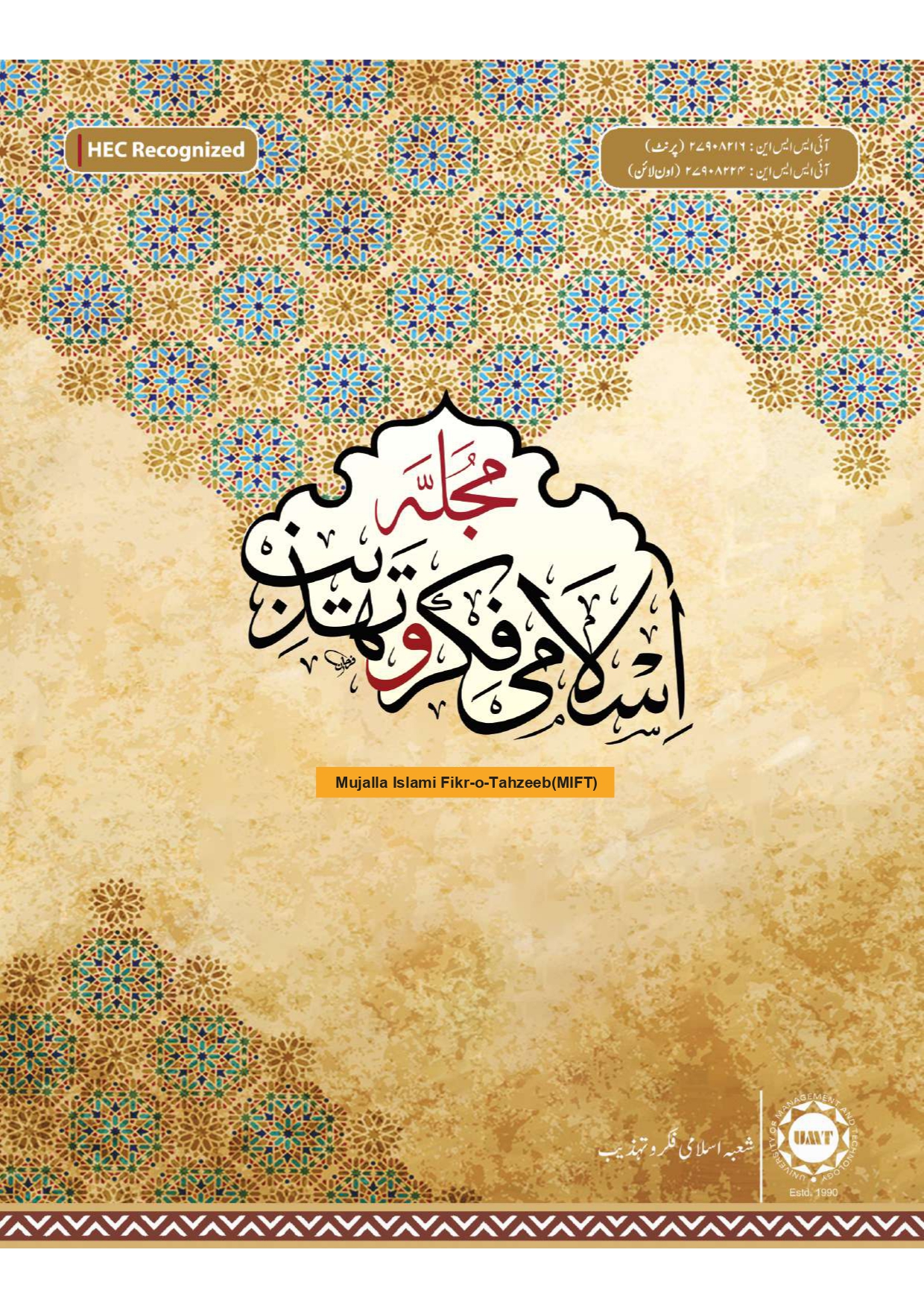عصرِ حاضر کے ریاستی آئین سے متعلق رہنما قرآنی مبادیات
Guiding Quranic Fundamentals Regarding Contemporary State Constitution
Abstract
 Abstract Views: 0
Abstract Views: 0
Constitution is the superior most legal document containing guiding principles for legislation and fundamental laws of the state. It is most reliable source of regulating affairs of state institutions, society and citizens. The Constitution is the most effective vigilance instrument for keeping the discretionary powers of the rulers and holding them responsible and accountable. It is the most authentic guarantee for protection of fundamental human rights. The prescriptive nature of Constitution makes it representative of democratic aspirations of the public, expressed through popular mandate. The holy Quran is the foundational basis of Constitution in a Muslim state, founded to fulfill the aspirations of adherents of Islam. The most prominent Quranic principles for Constitution making include the belief that sovereignty belongs to Allah almighty alone and obedience to the holy Prophet (PBUH) is obligatory in all affairs of the state. The raison d’être of a principled Islamic state, amr bil maroof and nahi anil munkir, is never to be ignored or disregarded. The principles of mutual consultation and coordination, entrustment of key positions to eligible individuals and protection of fundamental human rights are the hallmarks of Constitution. Treaty of Madina in the first Muslim state founded by Prophet Muhammad (PBUH) is the pragmatic manifestation of these divine principles.
Downloads
References
دہلوی، سیّد احمد، مولوی، متوفی 1336ھ،"فرہنگ آصفیہ") لاہور: مکتبہ حسن سہیل لمیٹڈ، 1974ء(۔
أحمد بن محمد الخفاجي المصري، متوفی 1069ھ، "شرح درة الغواص في أوهام الخواص") بیروت، لبنان:
دارالجیل ، 1417ھ۔1996ء(۔
اقبال، محمد، علامہ، متوفی 1357ھ،کلیاتِ اقبال (ضرب کلیم)،) لاہور: اقبال اکادمی، 2013(۔
فاروقی، برہان احمد، متوفی 1416ھ،قرآن اور مسلمانوں کے زندہ مسائل ) لاہور: ادارہ ثقافت
اسلامیہ،1989ء)۔
اصلاحی ، مولانا امین احسن،متوفی 1417ھ"اسلامی ریاست") لاہور: دار التذکیر ، 2006ء( ۔
ابن تیمیہ، متوفی 728ھ، سیاست شرعیہ(اُردو ترجمہ)، مولانا ابو العلا محمد اسمعیل گودھروی) کراچی :کلام
کمپنی، بدوں تاریخ( ۔
قادری، شمیم حسین سید، جسٹس، "اسلامی ریاست قرآن و سنت کی روشنی میں"( لاہور :محکمہ اوقاف
حکومت پنجاب،س،ن)۔
ابن كثير،أبو الفداء إسماعيل بن عمر القرشي البصري،متوفی 774ھ، "البداية والنهاية"( بیروت :دار الفكر
،1407ھ۔ 1987ء)۔
The New Oxford American Dictionary, 2nd edition, Oxford University Press, Oxford, 2005.
Lutz, Donald, S, “Principles of Constitutional Design”, Cambridge University Press, Cambridge, 2006.
Gordon Scott, “Controlling the State: Constitutionalism from Ancient Athens to Today”, Harvard University
Press, Harvard 1994.
Asad, Muhammad, “The Principles of State and Government in Islam”, Dar Al-Andalus, (for Services Book
Club), Gibraltar, 1986.
Copyright (c) 2023 Ghulam Rasool Zahid, Hafiz Liaqat Ali

This work is licensed under a Creative Commons Attribution 4.0 International License.
Authors retain copyright and grant the journal right of first publication with the work simultaneously licensed under a Creative Commons Attribution (CC-BY) 4.0 License that allows others to share the work with an acknowledgement of the work’s authorship and initial publication in this journal.



